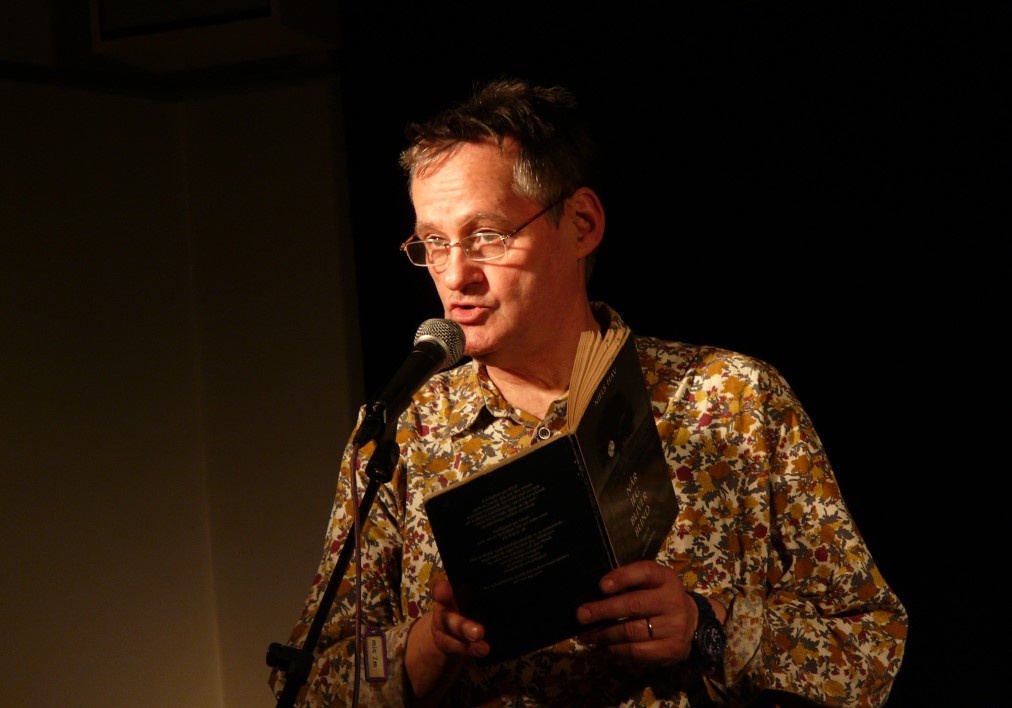Ardakh Nurgaz. Below the horizon

Poetry is about silence. Sometimes it is silence itself. The main quality here is that poetry can deal with hidden and indescribable things in its own way. In this respect, it has characteristics similar to art and music. It has the ability to pass on the other side of the matter, which is inherently untouchable, invisible, and unspeakable. It is about a spirit. It has different levels. If human thought and intuition are one of them, the culture created by humans is another way of existence. The top of this pathway is a very subtle concept related to God.
The poem "The Anesthtetists Discuss Astronomy" by the poet Niels Hav is intended to express the hidden essence that cannot be touched, seen, or told. The poem is composed of three verses. There is a tab in the middle. Through three verses, the poet presents three different scenes. You can think of it as a dynamic picture. That is all. The poet did not utter anything here, he just illustrated some scenes. The first scene is about the doctors and the patient in the elevator. The doctors are talking about space. The patient is silent. He should be worried about his illness. The doctors talk carefree. There is a paradox in the art itself. It reminds people of disease, ascension (for example, angels), death and ignorance, and numbness in human nature. The next scene is about random thoughts about space. It is like art. Infinite space emerges in your mind. In that infinite universe, there may be a planet just like our earth, says: "We are far from alone.” I would like to remind you that it is the doctor who said this sentence. They talk about space; they think about the earth; they talk about heaven; they say: "We are far from alone", and do not pay attention to the person in front of them, the lonely patient who silently thinks about his illness, surgery or even death. It is also an absurd and contradictory scene! Paradoxes overlap paradoxes. Absurd follow. Next, there are two separate lines. It is in these two lines that the poet wants to express to the reader. “December”, he said. It is a rainy day with ice and snow. The last month of the year is a cold and rainy month. These two lines conclude the atmosphere of the whole poem. If we regard "We are far from alone" in the above poem as people's pursuit of kindness, warmth, and intimacy, then "December" here means the opposite as cruelty, cold, and ruthlessness. Here, the poet's personal mental experience accurately ranks at the top. It is an essential tragic life map. From it emerges the coldness and fear aroused by the journey ending in death. This is the end of the poem. The last verse is another description of the first two verses. The patient is waiting in the waiting room. He is flipping through an old magazine. The poet wrote at the end of the poem: "There is only one single prayer." The scene in the waiting room immediately reminds people of the journey of life. It also echoed the “December". Life is like the pages of a magazine. In this process, people wait for the last moment, for the bell for themselves. The essence of life is to wait through life. From this point of view, the last sentence of the poem "only one single prayer" can also be considered redundant or ignored.
Poetry is an image, and it is a silent image. It may be fictional, but it has to be clear. It should be the poet's inner creative sense and instinct to embody it. Only the images penetrating the poet's heart are real, clear, and vivid. No matter how talented the poet is, or how unique the poem is, it is because of this. The silent image may not tell you anything, but it can open the infinite possibility of touching things to you. In this sense, poetry is a special relationship between you and the other. The previously mentioned poem of three verses has the same quality.
Translated into English by Bayan Ardakh
Niels Hav:
THE ANESTHTETISTS DISCUSS ASTRONOMY
The anesthetists discuss astronomy
elevating in the lift
while patients arrive in taxis
accompanied or not by family.
The universe
consists of 100 billion galaxies.
If there are sentient civilizations
on just a millionth of those planets
we are far from alone.
Outside: cold rain,
December.
A sick person
sitting in the waiting room
among frayed magazines
with his threadbare life
has only one single prayer.
© Niels Hav - Translated by P. K. Brask
Niels Hav. Анестезиологтар ғарыш туралы айтып жатыр (The Anesthtetists Discuss Astronomy):
http://www.thebilge.kz/e/action/ShowInfo.php?classid=5&id=3735
